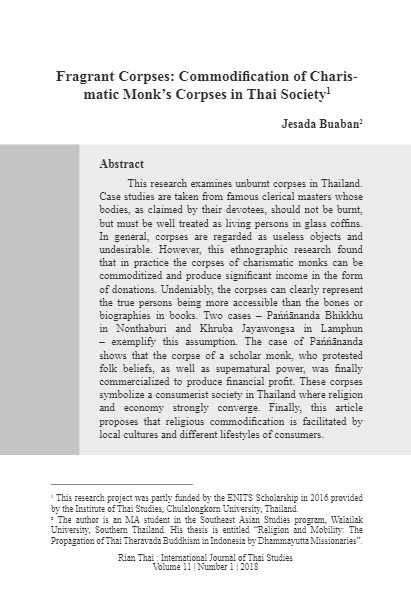Jesada Buaban
Abstract
This research examines unburnt corpses in Thailand. Case studies are taken from famous clerical masters whose bodies, as claimed by their devotees, should not be burnt, but must be well treated as living persons in glass coffins. In general, corpses are regarded as useless objects and undesirable. However, this ethnographic research found that in practice the corpses of charismatic monks can be commoditized and produce significant income in the form of donations. Undeniably, the corpses can clearly represent the true persons being more accessible than the bones or biographies in books. Two cases – Pańńānanda Bhikkhu in Nonthaburi and Khruba Jayawongsa in Lamphun – exemplify this assumption. The case of Pańńānanda shows that the corpse of a scholar monk, who protested folk beliefs, as well as supernatural power, was finally commercialized to produce financial profit. These corpses symbolize a consumerist society in Thailand where religion and economy strongly converge. Finally, this article proposes that religious commodification is facilitated by local cultures and different lifestyles of consumers.
(Published in Rian Thai: International Journal of Thai Studies, Volume 11/2018 (Number 1), Page 31-49)
Full Text : Download
